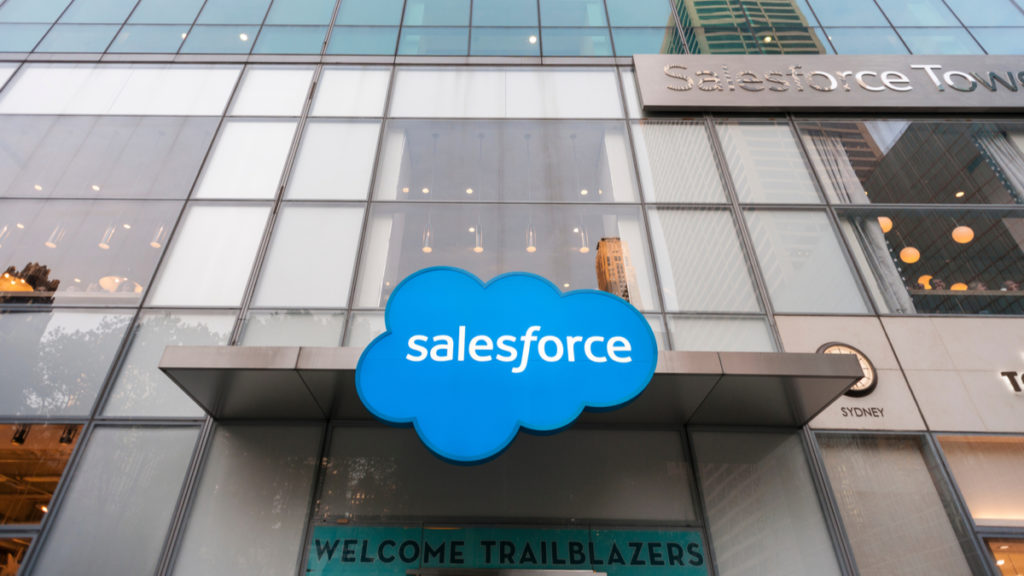
In creating a purpose-built cloud to manage transactions involving NFTs, Salesforce is joining Microsoft in jumping early into the enterprise metaverse in hopes of shaping the fast-approaching and dazzling new world of digital business.
A cnbc.com article quoting unidentified sources and posted yesterday said, “Salesforce told employees at a sales kickoff on Wednesday that the company plans to release an NFT Cloud” and “wants to offer a service for artists to create content and release it on a marketplace like OpenSea.”
For context, I also feel compelled to add here that the cnbc.com article, written by Jordan Novet, also contained this bizarre description of Salesforce that strikes me as being about 20 years out of date: “Salesforce, which provides cloud-based software for sales reps, marketing departments, and e-commerce vendors,….”
That’s a bit like saying that Steph Curry “wears short pants and plays with a ball for a living”—it might be true, but it’s also wildly misleading.
Here in 2022, Salesforce’s applications and platform services are used by large and midsized companies across the world to help businesses engage more intimately with customers, give business leaders deeper insights into market demand as well as internal operations, and drive new industry-specific digital processes.
So if Salesforce does indeed launch an NFT Cloud, its potential would have a vast range of potential applications for businesses: managing transactions via blockchain, track and register ownership in the explosively growing world of non-fungible tokens, oversee complex and multi-party transactions involved in shipping and transfer, and perhaps even set new standards in the ways new cryptocurrencies are managed and valued.
The key for Salesforce is grabbing that first-mover status because, with tens of thousands of customers across every industry in almost every country on the planet, Salesforce and its wide range of applications clouds could be integrated with this possible new NFT Cloud to help established businesses make their way into the still-undefined enterprise metaverse.
Another company eager to grab first-mover metaverse status is Microsoft, which is coming at it from both the consumer side with its pending $69-billion acquisition of Activision and also its wide range of enterprise solutions including IoT, HoloLens, Mesh, and even some new features on Teams.
In a recent piece called Satya Nadella & the Metaverse: Microsoft CEO on ‘Next Wave of Internet’, I shared this perspective offered by Nadella during his company’s Jan. 25 earnings call:
“As the digital and physical worlds come together, we are seeing real enterprise metaverse usage. From smart factories to smart buildings to smart cities, we are helping organizations use the combination of Azure IoT, Digital Twins, and Mesh to help digitize people, places, and things in order to visualize, simulate, and analyze any business process,” Nadella said (emphasis added).
In that same piece, I also offered this perspective on Microsoft’s extremely bullish approach to this metaverse thing that is, simultaneously, almost totally undefined yet strategically essential because it is where the future of business is headed:
One thing that came through to me very clearly: the metaverse as Nadella sees it is an unbroken continuum spanning our personal lives and our professional lives, with suitably different applications and engagement opportunities and solutions along the way. And he made that clear as he kicked open the door to what “the next wave of the internet” will be all about. “We’re going to invest across the entire tech stack,” he said.
In the months ahead, I think we’ll see every major cloud provider declare its intentions regarding the metaverse—but I give Salesforce and Microsoft high marks for jumping in early.
And to help you gain insights into this rapidly evolving phenomenon, please check out our daily coverage of the metaverse in My Metaverse Minute.








